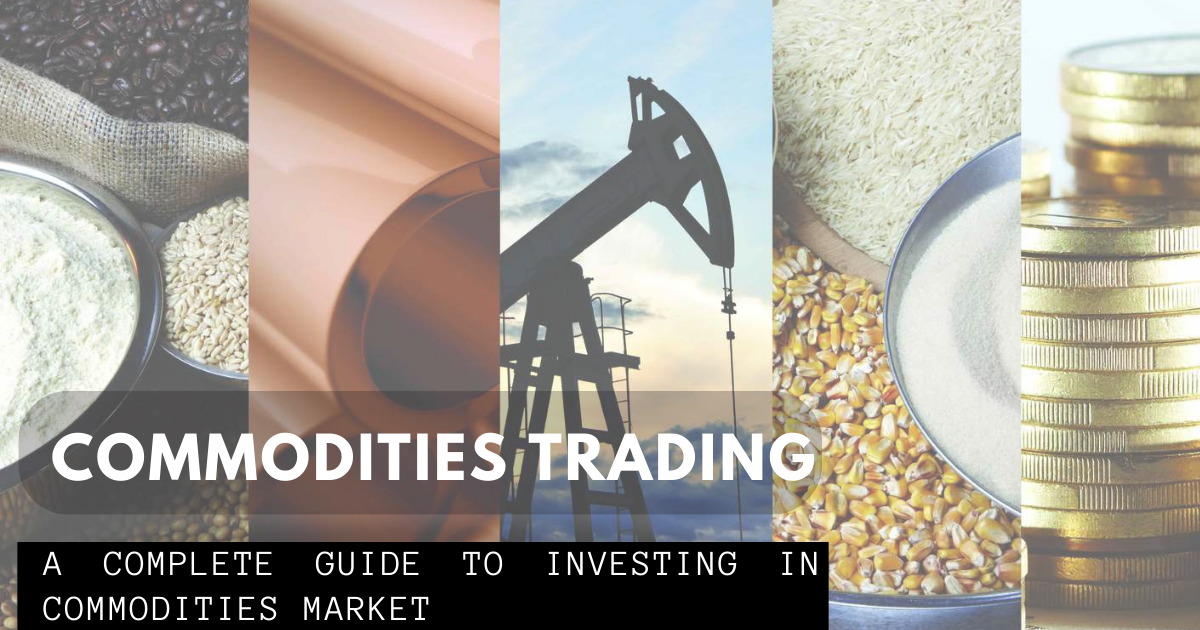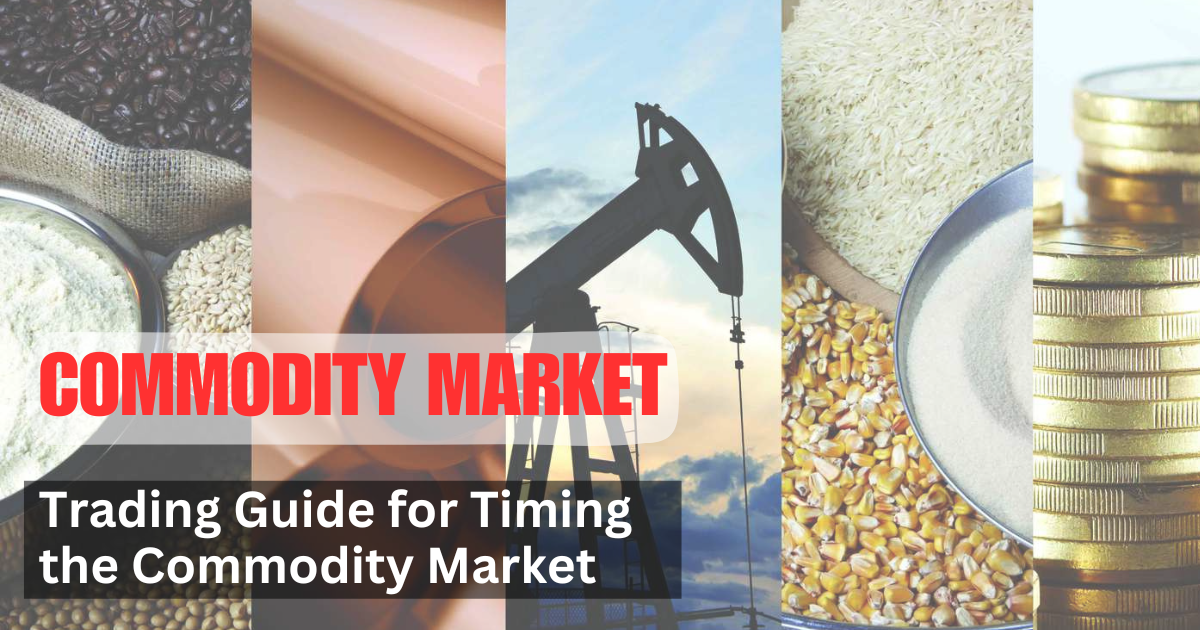
Goods have been an important part of human life for thousands of years. In this complete guide, we'll look at the world of commodities and find out what buyers can do with them.
Commodities offer a wide range of ways to invest, from physical assets like gold and oil to digital assets like coins. We will talk about what commodities are, the different kinds of commodities, the pros and cons of dealing in commodities, and ways to get around the commodities market. By the end of this piece, you'll know a lot about commodities and be ready to learn more about this interesting way to invest.
What are commodities?
Commodities are raw materials or basic things that are needed for people to live and for the economy to work. There are two main types of assets: real assets and digital assets. Physical assets are things that can be seen and touched, like gold and silver, crude oil and natural gas, farm products like wheat and corn, and industrial metals like copper and aluminium. On the other hand, digital assets are things that can't be seen or touched, like cryptocurrencies like Bitcoin and Ethereum. Commodities are important to many industries and are affected by things like supply and demand, geopolitical issues, and market trends.
Different kinds of goods
Goods can be put into different groups based on their properties and how they are used. One way to divide them is by how hard or soft they are. Hard commodities are things like metals, minerals, and energy items that come from nature. Soft commodities are things like grains, animals, and natural fibres that come from farms. One more way to divide commodities is by how they can be delivered. For example, gold bars and barrels of oil are brought physically, while futures contracts are settled with cash. When investors know the different kinds of commodities, they can choose the ones that fit with their financial goals and willingness to take on risk.
The benefits of investing in commodities.
Investing in commodities gives buyers a number of benefits.
First, commodities help to spread out risk. They usually don't have much in common with standard asset classes like stocks and bonds, which makes them a good addition to a portfolio.
Second, metals can be a way to protect yourself from inflation. As the prices of goods and services go up, the value of goods may go up, which keeps people's ability to buy things the same.
Third, commodities can give you a chance to make money. Price changes can be caused by market trends, imbalances in supply and demand, and geopolitical issues. Investors can profit from price changes.
The risks of investing in commodities
Putting money into commodities can be profitable, but it also comes with some risks. Price fluctuations are a major risk.
Prices of commodities can be affected by many things, such as world events, weather, and economic trends. This instability can cause big changes in the value of investments in commodities.
Another risk is not making enough money. Unlike stocks or bonds, which may pay profits or interest, commodities don't make money on their own. Instead, they make money when their prices go up.
There are also governmental and geopolitical risks that can come with investing in commodities. Prices and availability of goods can be affected by changes in government policies, trade disagreements, or problems with the supply chain.
When dealing in commodities, it's important for investors to carefully consider and deal with these risks.
Tips for Investing in Commodities | How to Invest in Commodities
When you invest in commodities, you need to be careful and know how the market works.
Here are some ideas to think about:
Research and Analysis:
Stay up-to-date on the things that affect the prices of commodities, such as the way supply and demand change, the global economy, and international events. Do a lot of study and analysis to find potential places to invest.
Diversification:
Diversification means putting your money into different kinds of goods to lower your risk. To keep your portfolio balanced, you might want to invest in both hard and soft goods.
Use Exchange-Traded Funds (ETFs):
ETFs are a simple way to buy in a group of commodities without actually owning them. They offer diversification and liquidity while following the success of commodity indices.
Consider futures contracts:
With futures contracts, investors can bet on the price of goods in the future without having the goods themselves. They can be used for hedging or trade, but because they are complicated, you need to know what you are doing.
Expert Advice:
Consult a financial advisor or commodities broker who specialises in this area if you don't know much about investing in commodities or if you need expert help. They can give you useful information and help you make smart business choices.
Conclusion:
Investing in commodities can be a great way to diversify your portfolio and possibly make money. Commodities offer a wide range of ways to invest, from actual things like gold and oil to digital things like cryptocurrencies.
Investors can confidently handle the commodities market if they understand the different types of commodities, their benefits and risks, and use good investment strategies.
Don't forget to do thorough study, spread out your investments, and keep up with market trends. Investing in commodities can be a good part of your financial strategy if you think about it carefully and stick to a plan. Start looking into the world of commodities right away to find ways to diversify your portfolio and make money.





Leave a comment